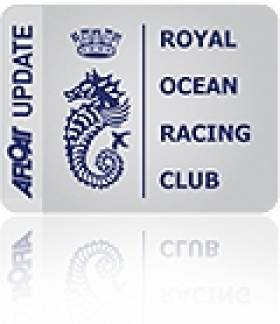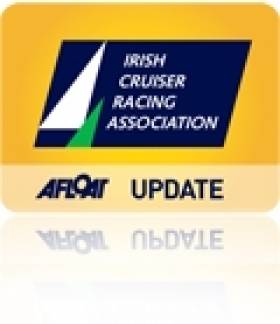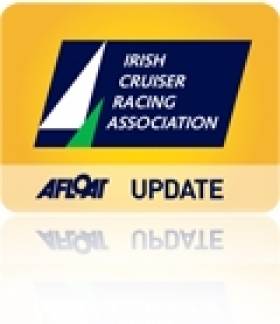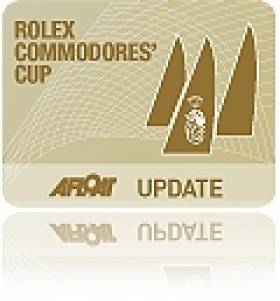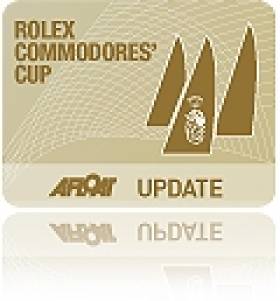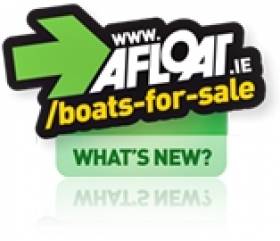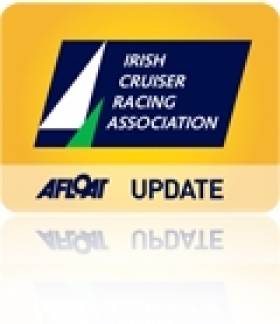Displaying items by tag: commodore's Cup
New Sponsor Announced for 2012 Commodore's Cup
Brewin Dolphin, one of the UK's largest independent private client investment managers, will support the biennial race for three editions. The event attracts highly competitive teams from several nations to compete for the esteemed Commodores' Cup on the waters of the Solent and English Channel.
Jamie Matheson, Brewin Dolphin Executive Chairman comments: "We are proud to add such a prestigious event as the Commodores' Cup to our portfolio and look forward to building a long term relationship with the Royal Ocean Racing Club, its members and competitors. We are not newcomers to the world of sailing, having successfully sponsored the Scottish Series for the past 11 years. Sailing has provided us with an excellent platform to increase awareness of our brand to a wider audience and we are confident that the Commodores' Cup will develop this."
Matheson continues: "The Royal Ocean Racing Club as organisers and the Commodores' Cup series has its own rich heritage and this fits well with Brewin Dolphin as our firm goes back two and a half centuries. Although we can trace our beginnings back to the mid 18th Century, we look forward to investing in new beginnings with this sponsorship, helping to attract new teams and a positive long term partnership for future events."
RORC Commodore Andrew McIrvine is delighted to welcome Brewin Dolphin as title sponsor for the next six years: "This sponsorship will allow us to build on the success of the competition which stands out in the calendar of international yacht racing for a number of reasons, not least of which is the significant offshore component to the championship and the challenges it presents to the highly competitive teams. In 2010, the Cup was lifted by the Irish and the tenth biennial event attracted 10 top challenges from five nations to compete: France, Ireland, Great Britain, Hong Kong and South Africa. The event attracts top-level amateur sailors, many of whom race with us throughout the season in the RORC's extensive racing programme. We are certain that with Brewin Dolphin's support, the 2012 edition of the Commodores' Cup will be a huge success."
The Brewin Dolphin Commodores' Cup is a team event, the overall winner is a team of three boats not one individual and the kudos of being part of the successful team is self-evident.
Keelboat racing in the Solent and the English Channel is technically very difficult and about as good as it gets. The factors of strong tides, ever changing weather conditions coupled with hazards and the need for local knowledge have all attracted the best sailors to the area since the earliest days of competitive racing. The combination of inshore and offshore racing that makes up the Commodores' Cup regatta format lets both of these important disciplines count for what must be today the top Corinthian offshore yacht team event.
Further details of the Brewin Dolphin Commodores' Cup can be found at: http://commodorescup.rorc.org/
Commodores' Cup Winners:
2010 - Ireland
2008 - GBR Red team
2006 - France Blue team
2004 - GBR (Red team)
2002 - France (Red team)
2000 - Channel Islands
1998 - Germany (red team)
1996 - England (Green team)
1994 - USA (White team)
1992 - USA (Team 1)
Other nations represented in past events by the following teams: The Netherlands, Hong Kong, Spain, Belgium, Russia, Europe, Commonwealth, Wales, Scotland, Scandinavia, Argentina, Australia, Jersey, Finland.
The Brewin Dolphin Commodores' Cup will be held off Cowes, Isle of Wight, from 21 to 28 July 2012. ENDS/....
ICRA Seek Team for Defence of 2012 Commodore's Cup
The Irish Cruiser Racing Association (ICRA) is seeking expressions of interest from owners to form an Irish team to defend the Rolex Commodore's Cup next July.
ICRA Commodore Barry Rose says that despite the current difficult environment ICRA remains hopeful of mounting a serious defence and have waited until now to allow the maximum time to those who may consider supporting the challenge.
The Rolex Commodores Cup takes place from 21st to 28th July 2012 based in Cowes. Ireland first won this prestigious International Trophy in 2010 .
Captain of the winning team Anthony O Leary told Afloat.ie: 'We finally won this great event in 2010 with a well organised campaign. Let's hope we
can return to defend it in 2012 learning further from that experience'
The regatta format has been changed by event organisers the RORC in that the smallest boat will now have a minimum rating of 1.020 with the biggest boat maximum rating of 1.230. There will be only one boat per team allowed to rate in excess of 1.150.
This means there will no longer be three separate classes so all starts will be all in which will add to the excitement and spectacle of the event.
Countries will be free to decide on their own combination of boat sizes within the above bands which will add further to the intrigue of this non discard seven day test of inshore and offshore racing.
ICRA is asking for potential interested owners to make contact with them as soon as possible in order that a meeting can be held within the next month to advance ideas on how best to mount a successful defence.
Outstanding Anthony O'Leary is Worthy Sailor of the Year
Anthony O'Leary of Cork is the Afloat.ie/Irish Independent "Sailor of the Year" in celebration of his outstanding achievements afloat nationally and internationally throughout last season, and to honour his dedication to sailing in all its forms both as a participant and an administrator.
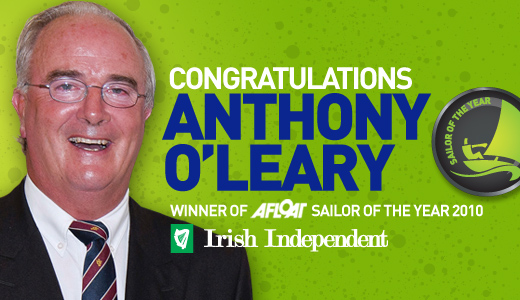
The O'Leary pace afloat and ashore belies his age of 53. During 2010, it was in May that he was "Sailor of the Month" for an already remarkable list of wins with his Ker 39 Antix. Having topped the April Series in Kinsale, he then won the Crosshaven-Dun Laoghaire race overall, went on to win his class and be one of the top points scorers in the ICRA Nationals in Dublin Bay, and then went on to Scotland to win his class overall with a nail biting brace of wins on the final day of the Scottish Series.
To achieve all that before May was out was exceptional, but the O'Leary progress was only beginning. The big picture was to maintain momentum towards the international Commodore's Cup in the Solent in August. Antix was one of the three boat squad, and her skipper was also the team captain in a campaign which was light years away from the glossy efforts which dominated the boom years of Irish affluence.
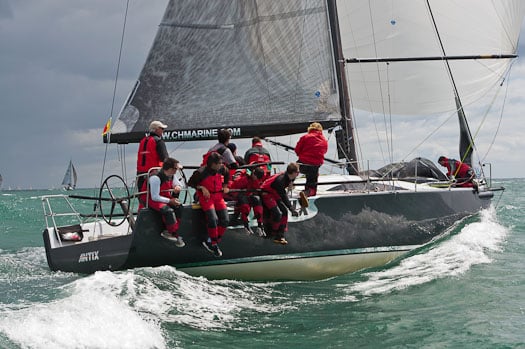
Anthony O'Leary takes on the waves at the helm of his yacht Antix during Cork week in Cork Harbour. Photo: Bob Bateman
In previous seasons, Ireland had been able to muster enough boats for two or even three teams, yet had never won despite being within inches of success. But this time round, only three boats were game for it, and only one – Rob Davis's Corby 36 Roxy – was new. Yet with Dave Dwyer's ever-keen Mills 39 marinerscove.ie filling the third slot, O'Leary headed a potent force, and he himself sailed with style and inspiring sportsmanship to give Ireland a commanding overall win.
Anthony O'Leary is the personification of Irish sailing at its very best. With the enthusiastic support of his wife Sally, he is father to a family which has logged outstanding sailing success at all levels. Yet he himself is in many ways the quintessential club sailor. He is as happy racing the Autumn series at Crosshaven with a 1720 or the West Cork regattas with a cruiser-racer, as he is competing at the highest levels. He has been among the front runners for the title of Ireland's "Sailor of the Year" several times. And now, as with all his wins, when he does do it, O'Leary does it with style.
Commodores' Cup Boats Jointly Awarded Boat of the Year Award
There was a strong seal of approval from sailing delegates at the ICRA Conference yesterday evening for the decision to award the Boat of the Year prize to all three Royal Cork boats from the winning Irish Commodore's Cup team.
Antix, Marinerscove and Roxy lifted the trophy to loud applause at the Carrigaline Court Hotel, the venue for ther eighth annual meeting of Irish Cruiser Racer interests. Last night Commodores Cup celebrations continued at the Royal Cork Yacht Club at a special dinner in honour of the team who brought home the cup after more than a decade of attempts.
In announcing their decision the ICRA judging team stated that as there was 'no way they could split the RCC boats that made up the winning team' this summer. The decision had been expected given the importance of the international victory in Cowes.
Earlier this month a readers poll on Afloat.ie that attracted nearly 3,000 votes showed an offshore yacht Raging Bull from Skerries to be a popular choice for the trophy. HERE. Discussion HERE. It's an indication of the widening appeal of a part of the sport that has been rekindled on the Irish Sea.
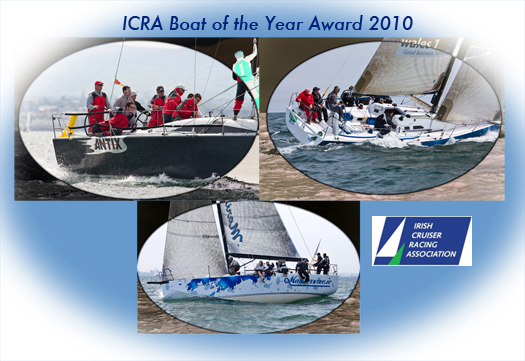
ICRA's Boats of the Year: The Cork team that won the Commodore's Cup. Montage by Bob Bateman
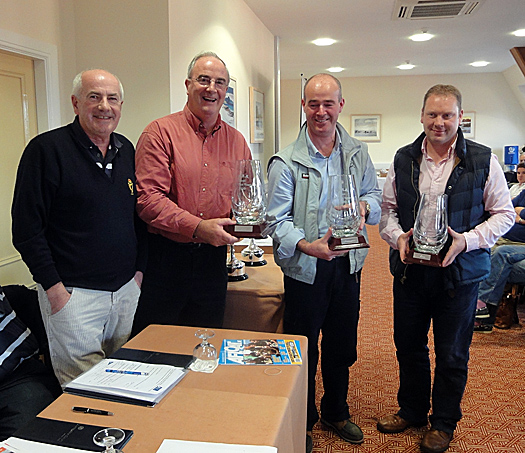
Winning Trio: ICRA Commodore Barry Rose (left) with skippers Anthony O'Leary, Dave Dwyer and Andrew Creighton. Photo by Peter Ryan
Update: Ireland Consolidates Lead in Isle of Wight Race
The race on Friday, 20 August, has been a short offshore, although never out of sight of land, of 55 nautical miles. Of the three Irish yachts, according to the fleet GPS tracker, Antix leads her class, while Marinerscove.ie lies fourth and Roxy 6 eighth. Maybe not the best performance of this fantastic week for Irish sailing, but with the Hong Kong team struggling to capitalise, the Irish Cruiser Racer Association (ICRA) team led by Barry Rose may well end the day having extended its lead.
Saturday sees the final race of the series. It is a double-points race so anything remains conceivably possible. However, if the current standings translate into results, Ireland has a vice-like grip on the title, according to local sources including leading website Cowes online.
More as we have it.
Rolex Trophy Honours Up for Grabs This Morning
Ireland's Commodores' Cup Yacht for Sale at Euro 295,000
Ireland's Commodores' Cup boat 'Marinerscove.ie' skippered by Dave Dwyer is up for sale priced Euro 295,000. The Mills 39 is available after next week's Rolex Commodore Cup according to an advertisement on an online advertisement in the UK, click HERE. Described as 'probably the most successful IRC boat ever' the yacht, built by Vision Yachts of Cowes in 2006, is the current UK and Irish IRC champion. The yacht is constructed of E Glass, S Glass and Corecell. Mast from Formula Spars of High Modulus Carbon and has been professionally maintained, according to the site.
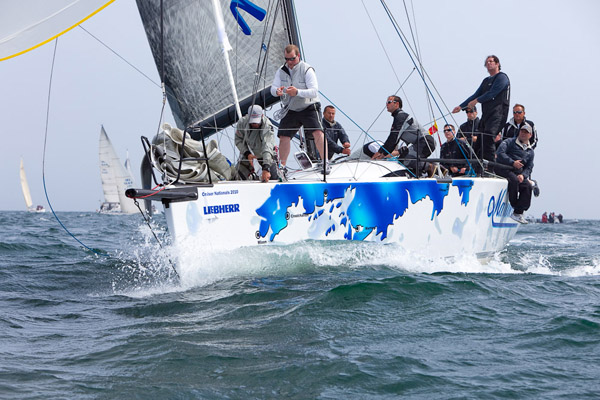
Marinerscove.ie is for sale and available after next week's Commodores' Cup. Photo: Bob Bateman
Second Commodore's Cup Team Not Ruled Out
Cruiser Racer insiders say it looks less positive now that ICRA will manage to produce a second Commodore's Cup team for August but at the same time sailing officials have not given up hope yet. Ireland's single team for August all hails from Crosshaven but yesterday there was still talk of a second team forming. "Clearly boats such as Tiamat, Rockabill and Jump Juice would all be likely candidates" said one source. "What's imperative now is a good performance this weekend [at the ICRA Championships] to show that a second team has got the pace" he added.


























